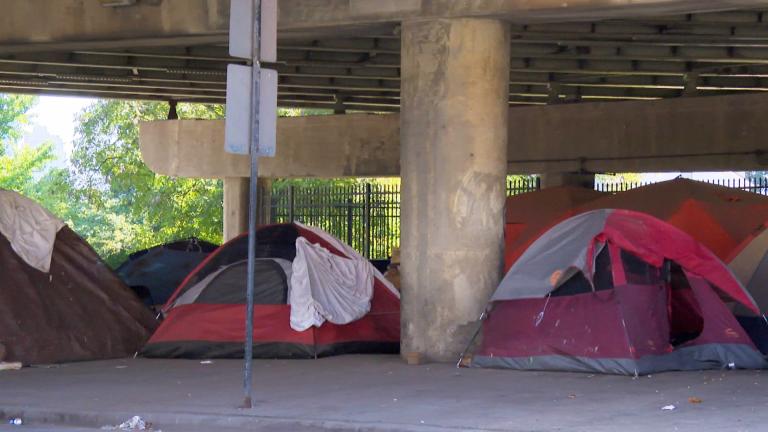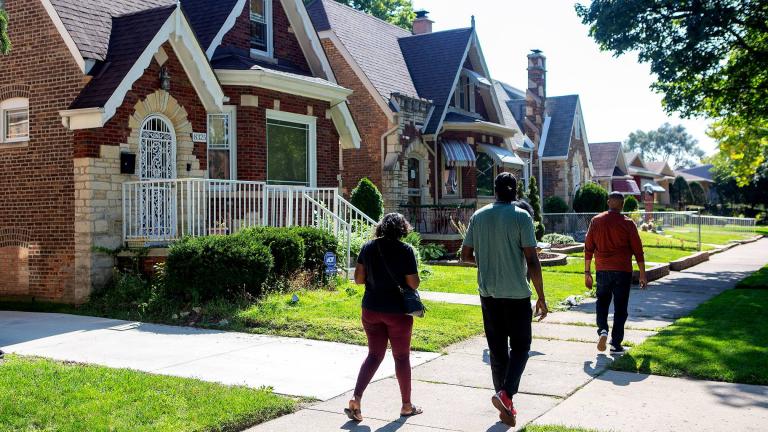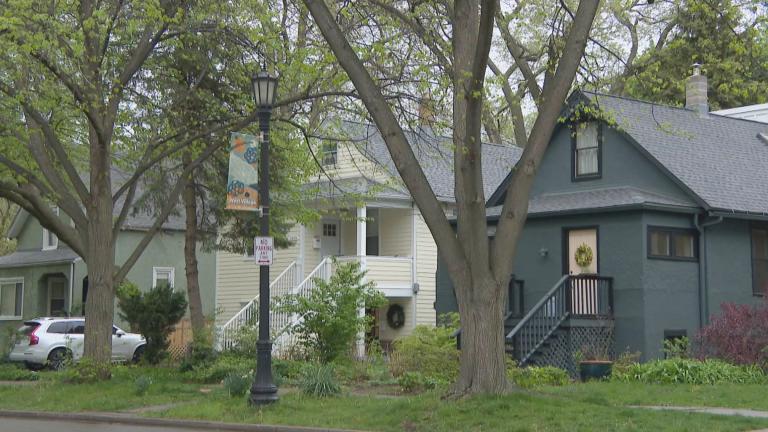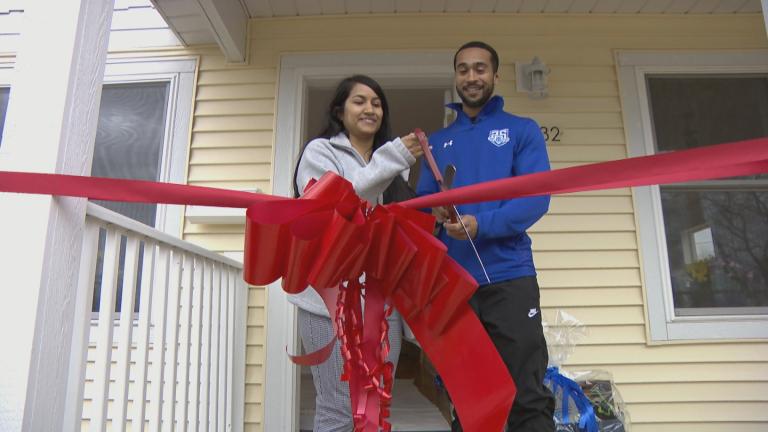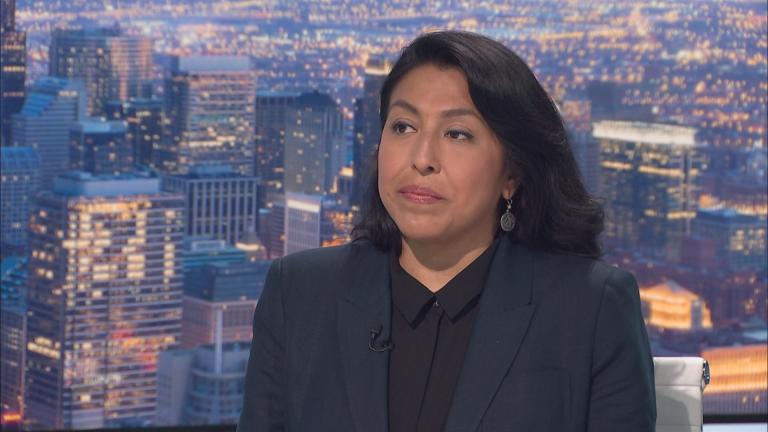2021 was a banner year for the housing market in metropolitan Chicago.
Realtors sold more homes than ever, while prices rose at rates not seen since the housing boom of the early 2000s. The median home sale price for the metropolitan Chicago area was up almost 12% over the year prior, according to the Illinois Association of Realtors.
Fueling that demand was a combination of low interest rates and folks looking to make pandemic-inspired moves to larger homes as remote working became the norm for many.
“2021 really follows what started in 2020, where an enormous number of people traded houses because what they lived in didn’t work for their COVID-era lifestyle,” said Dennis Rodkin, residential real estate reporter for Crain’s Chicago Business. “They needed more rooms for work at home, for school at home, for working out at home. And that ended up continuing really through the end of 2021.”
Rodkin says he believes the market may begin to slow a little in 2022.
“At some point there is a limit, right? Once everybody has traded houses – everybody who wants to has done it – it’s done. But there will, of course, always be the regular reasons for people to buy new homes and that is lifecycle changes, getting married, getting divorced, becoming an empty nester, those kinds of things. It does feel as if there has to be a limit coming, but we don't know where that is,” said Rodkin.
One thing that has been driving home prices higher is the lack of homes for sale. Tight inventory in 2021 meant that demand was easily outstripping supply.
“I saw people standing in line all the way down the block to see a house that came on the market that day,” said Rodkin.
He thinks that some of those would-be buyers who didn’t want to get into a bidding war in 2021 may return to the market in 2022.
“I think we’re going to see a lot of them come back because the price growth slowed down because the frenzy in the market slowed down,” says Rodkin.
Gwendolene Newton, a real estate agent and president of the Dearborn Realtist Board, an African American real estate trade association, says that while the broader real estate market was booming in 2021, for African Americans the market was “more flat.”
“There was a definite uptick in terms of the number of buyers that have hit the market that were attempting to buy,” said Newton, but the lack of inventory was a constant issue.
Newton also notes that past discrimination means that many African American families have not benefitted from generational wealth that many white families take for granted.
“In the African American communities where you know resources have been drained, the level of wealth in those communities is not as great as in the white community,” said Newton. “And so it’s been harder for African Americans to compete in some of the markets because they don't have same down payment amount…. For families that have built generational wealth and then passed down generational wealth, it’s easier for them to go to their bank accounts and pull out their cash reserves available.”
Newton says that while discriminatory practices such as redlining are no longer “condoned” she believes there is a different level of scrutiny that African American homebuyers are put through when applying for a home loan and that “there’s still some level of discrimination that occurs.”
Both Rodkin and Newton agree that one issue that could be a dampener on the market in 2022 and beyond is crime.
“Even though crime hasn’t yet stopped buying or renting in the downtown markets, it may have put a lid on (the market),” says Rodkin. “We don’t know how many more people might have bought if there hadn’t been a crime issue.”
Newton said the issue was clearly motivating some African American families to relocate.
“I think the level of crime that is occurring in the city of Chicago right now is really pushing families to move elsewhere,” said Newton. “There’s a migration of people that are moving to the suburbs – the south suburbs have seen an uptick. There’s also been some forms of relocation where, you know, folks are actually looking out of state and applying for jobs out of state and have decided to relocate.”

